PROGRAM EDUCATIONAL OBJECTIVES (PEO)
The Program Educational Objectives (PEOs) of M.E Construction Engineering and Management are
PEO 1 : Train and enrich students with efficient and effective knowledge in project formulation, planning, scheduling techniques and quality construction management techniques for the construction projects
PEO 2 : Employ contemporary methods, procedures, modern tools and techniques to solve the real life construction management problem.
PEO 3 : Develop cost-effective solutions for a sustainable environment with deep insight in societal and ecological issues by exhibiting team work and adhering to ethics and professionalism
PEO 4 : Engage in lifelong learning for career enhancement and to excel in research and development
Programme Outcomes
PO1: Identify and define problems, gather data related to the problem, generate and prioritize a set of alternative solutions, and select and implement the best alternative incorporating the recommendations of relevant codes of practice.
PO2: Analyze, design, conduct numerical experiments, and interpret data of complex construction technology management problems.
PO3: Apply construction management practices and principles to a project and lead the team for efficient project management considering economical and financial factors.
PO4: Analyze the impact of engineering solutions on environment and the need for sustainable development.
PO5: Use the techniques, skills, advanced modern engineering tools, instrumentation and software packages necessary for engineering practice.
PO6: Acquire competent technical knowledge to practice construction profession and develop ideas to amalgamate the existing and contemporary knowledge.
Curriculum & Syllabus
CURRICULUM & SYLLABUS
MINIMUM CREDITS TO BE EARNED: 80
| SEMESTER I | Hours/Week | Maximum Marks | ||||||
|---|---|---|---|---|---|---|---|---|
| Category | Course Title | Lecture | Tutorial | Practical | Credits | CA | SEE | Total |
| Program Core | Construction Planning Scheduling and Control | 3 | 1 | 0 | 4 | 40 | 60 | 100 |
| Program Core | Modern Materials of Construction | 3 | 1 | 0 | 4 | 40 | 60 | 100 |
| Foundation Course | Statistical Methods and Queuing Theory | 3 | 1 | 0 | 4 | 40 | 60 | 100 |
| Program Elective | Program Elective I | 3 | 1 | 0 | 4 | 40 | 60 | 100 |
| Program Core | Construction Planning and Scheduling Laboratory - I | 0 | 0 | 4 | 2 | 40 | 60 | 100 |
| Program Core | Computing Lab in Construction Management - I | 0 | 0 | 4 | 2 | 40 | 60 | 100 |
| Mandatory courses | Research Methodology and IPR | 2 | 0 | 0 | 2 | 40 | 60 | 100 |
| Audit Course | Technical Seminar I | 0 | 0 | 0 | 0 | 40 | 60 | 100 |
| Total | 14 | 4 | 8 | 22 |
Eligibility Criteria
| Program | Criteria for MeritProgram Duration (Year) | Program Duration (Year)Eligibility | Criteria for Merit |
|---|---|---|---|
| M.Tech Construction Engineering & Management | "2 Years (4 Semesters)" | "Passed Bachelor’s Degree or equivalent in the relevant field. Obtained at least 50% marks (45% marks in case of candidates belonging to reserved category) in the qualifying examination." | Merit based on GATE/ TANCET/ Vels Entrance Examination and percentage of mark secured in the qualifying examination |
Career Prospects
CAREER PROSPECTS
- Construction Planning Engineer
- Site Engineer
- Scientists in reputed CBRI
- Site Engineer, Management Engineer
- Senior Manager
- Senior Engineer
- Entrepreneur
- Technical Field Engineer
- Tunnel Construction Engineer
- Consultant etc.
Alumni Testimonials

I am thankful to the management of VISTAS and department of civil engineering for providing me an opportunity to study my M.E course in VISTAS. My stay at VISTAS exposed me to the contemporary construction techniques employed in the industry and motivate me to learn more about the construction planning and scheduling tools. The knowledge transferred through faculty teachings, industry interactions and internships was very helpful in carrying out a novel project and instilling the belief that I can be an entrepreneur. I thank the department of civil engineering and faculties of civil engineering for their role in molding me as a confident, goal oriented successful businessman.
Mr. R. Karthick M. E. 2014 – 2016 Batch
M.E Construction Engineering and Management Proprietor, R K Engineering, Thanjavur.
Fee Structure
| Tuition Fee 2024 - 2025 (Per Sem) | Other Fee (Per Sem) | Total Fee 2024 - 2025 (Per Sem) |
|---|---|---|
| 30,000 | 19,000 | 49,000 |
Programme Outcomes
PROGRAMME OUTCOMES (PO)
Graduates in Civil Engineering will acquire and possess ability to
PO 1 Engineering Knowledge: Apply the knowledge of mathematics, science, engineering fundamentals, and an engineering specialization for the solution of complex civil engineering problems.
PO 2 Problem Analysis: Identify, formulate, research literature, and analyse complex engineering problems reaching substantiated conclusions using first principles of mathematics, natural sciences, and engineering sciences.
PO 3 Design/development of solutions: Design solutions for complex civil engineering problems and design system components or processes that meet the specified needs with appropriate consideration for public health and safety, and cultural, societal, and environmental considerations.
PO 4 Investigations on Complex Problems: Use research-based knowledge and research methods including design of experiments, analysis and interpretation of data, and synthesis of the information to provide valid conclusions.
PO 5 Modern Tool Usage: Create, select, and apply appropriate techniques, resources, and modern engineering and IT tools including prediction and modelling to complex engineering activities with an understanding of the limitations.
PO 6 Engineer and Society: Apply reasoning informed by the contextual knowledge to assess societal, health, safety, legal, and cultural issues and the consequent responsibilities relevant to the professional engineering practice.
PO 7 Environment and Sustainability: Understand the impact of the professional engineering solutions in societal and environmental contexts, and demonstrate the knowledge of, and the need for sustainable development.
PO 8 Ethics: Apply ethical principles and commit to professional ethics and responsibilities and norms of the engineering practice.
PO 9 Individual and Team Work: Function effectively as an individual, and as a member or leader in diverse teams, and in multidisciplinary settings.
PO 10 Communication: Communicate effectively on complex engineering activities with the engineering community and with the society at large, such as being able to comprehend and write effective reports and design documentation, make effective presentations, and give and receive clear instructions.
PO 11 Project Management and Finance: Demonstrate knowledge and understanding of the engineering and management principles and apply these to one’s work, as a member and leader in a team, to manage projects and in multidisciplinary environments.
PO 12 Life-long Learning: Recognise the need for, and have the preparation and ability to engage in independent and life-long learning in the broadest context of technological change.
Curriculum & Syllabus 2018
CURRICULUM & SYLLABUS
MINIMUM CREDITS TO BE EARNED: 170
| Category | Code No. | Course | Hours / Week | |||
|---|---|---|---|---|---|---|
| Lecture | Tutorial | Practical | Credits | |||
| Humaniti es | 18GBE201 | English | 2 | 0 | 0 | 2 |
| Basic Science | 18GBE001 | Physics (Mechanics and Mechanics of Solids) | 3 | 1 | 0 | 4 |
| Basic Science | 18GBE002 | Mathematics – I | 3 | 1 | 0 | 4 |
| Engg Course | 18GBE003 | Basic Electrical Engineering | 3 | 1 | 0 | 4 |
| Engg Course | 18GBE004 | Engineering Graphics & Design | 1 | 0 | 4 | 3 |
| Humaniti es Lab | 18GBE202 | English Lab | 0 | 0 | 2 | 1 |
| Basic Science | 18GBE005 | Physics Lab | 0 | 0 | 2 | 1 |
| Engg Lab | 18GBE006 | Electrical Engineering Lab | 0 | 0 | 2 | 1 |
| Total | 12 | 3 | 10 | 20 |
Curriculum & Syllabus 2022
CURRICULUM & SYLLABUS
MINIMUM CREDITS TO BE EARNED: 170
| Category | Course | Hours / Week | ||||||
|---|---|---|---|---|---|---|---|---|
| Lecture | Tutorial | Practical | Credits | CA | SEE | Total | ||
| HSC | English | 2 | - | - | 2 | 40 | 60 | 100 |
| BSC | Physics (Mechanics and Mechanics of Solids) | 3 | - | - | 3 | 40 | 60 | 100 |
| BSC | Mathematics – I | 3 | 1 | - | 4 | 40 | 60 | 100 |
| ESC | Basic Electrical and Electronics Engineering | 3 | - | - | 3 | 40 | 60 | 100 |
| ESC | Engineering Graphics and Design | 1 | - | 4 | 3 | 40 | 60 | 100 |
| HSC | English Laboratory | - | - | 2 | 1 | 40 | 60 | 100 |
| BSC | Physics Lab | - | - | 2 | 1 | 40 | 60 | 100 |
| ESC | Basic Electrical and Electronics Engineering Laboratory | - | - | 2 | 1 | 40 | 60 | 100 |
| MC | Constitution of India | 2 | - | - | - | 100 | ||
| MC | Student Induction Student Induction Program | - | - | - | - | - | - | - |
| 14 | 1 | 10 | 18 | 12 | 3 |
Eligibility Criteria
| Program | Criteria for Merit | Eligibility | Criteria for Merit |
|---|---|---|---|
| B.E. Civil Engineering | 4 Years (8 Semesters) | "First Year: Passed 10+2 examination with Physics/ Mathematics/ Chemistry/ Computer Science/ Electronics/ Information Technology/ Biology/ Informatics Practices/ Biotechnology/ Technical Vocational subject/ Agriculture/ Engineering Graphics/ Business Studies/ Entrepreneurship as per table 8.4 Agriculture stream (for Agriculture Engineering) Obtained at least 45% marks (40% marks in case of candidates belonging to reserved category) in the above subjects taken together. OR Passed D.Voc. Stream in the same or allied sector. (The Universities will offer suitable bridge courses such as Mathematics, Physics, Engineering drawing, etc., for the students coming from diverse backgrounds to prepare Level playing field and desired learning outcomes of the programme) Lateral Entry (to Second Year) Passed Minimum THREE years / TWO years (Lateral Entry) Diploma examination with at least 45% marks (40% marks in case of candidates belonging to reserved category) in ANY branch of Engineering and Technology. OR Passed B.Sc. Degree from a recognized University as defined by UGC, with at least 45% marks (40% marks in case of candidates belonging to reserved category) and passed 10+2 examination with Mathematics as a subject. OR Passed B.Voc/3-year D.Voc. Stream in the same or allied sector. (The Universities will offer suitable bridge courses such as Mathematics, Physics, Engineering drawing, etc., for the students coming from diverse backgrounds to achieve desired learning outcomes of the programme)" | " Merit based on Vels Entrance Examination and percentage of mark secured in the qualifying examination" |
Career Prospects
CAREER PROSPECTS
- Construction managers
- Geotechnical Engineers
- Environmental Engineers
- Public Health Engineers
- Quantity Surveyors
- Transportation Engineers
- Urban Planners
- Engineering Geologist
- Contractors
- Entrepreneurs
- BIM Expert
- Planning and Scheduling Engineer
- City Planner
- Safety Engineer
- Disaster Management Response Engineer
- Fire and Risk Assessment Engineer
- Seismic Design Engineer etc.
Alumni Testimonials

The curriculum and syllabus of B.E. Civil Engineering along with excellent faculty expertise has immensely contributed in improving my knowledge and confidence. I thank all the faculties of Civil Engineering as they are very much helpful and supportive. The knowledge gained has propelled me to start and run my own company successfully.
M. Vignesh (B.E Civil Engineering), 2012 – 2016
Managing Director, V6 Construction, Chennai
Fee Structure
| Tuition Fee 2024 - 2025 (Per Sem) | Other Fee (Per Sem) | Total Fee (Per Sem) |
|---|---|---|
| 32,000 | 28,000 | 60,000 |
Faculty of the Department
| Sl. No. | Name of the Faculty | Designation | Educational Qualification | Area of Specialization | Date of Joining | Nature of Association | Photos |
|---|---|---|---|---|---|---|---|
| 1 | Dr C Antony Jeyasehar | Professor | B.E (Hons), M.E., Ph.D. | Health Monitoring of structures, New Materials, Non Destructive Testing | 28.07.2023 | Regular |  |
| 2 | Dr.Ilango.T | Professor & Head | M.Tech., Ph.D. | Non-Motorized Transportation, Sustainable construction and materials, Traffic Engineering & Road Safety Audit | 01.07.2015 | Regular | 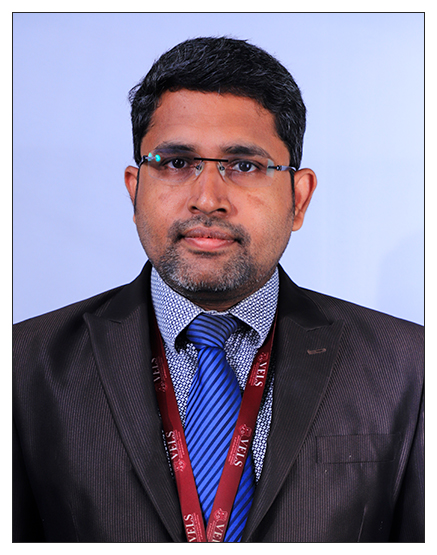 |
| 3 | Dr.Jino.R | Associate Professor | M.Tech., Ph.D | 1) Drone based survey & 3D Mapping for Urban Planning 2) Application of Digital Photogrammetry & Advanced Survey techniques in Civil Engineering 3) GIS Modeling in Construction Management" | 01.07.2015 | Regular | 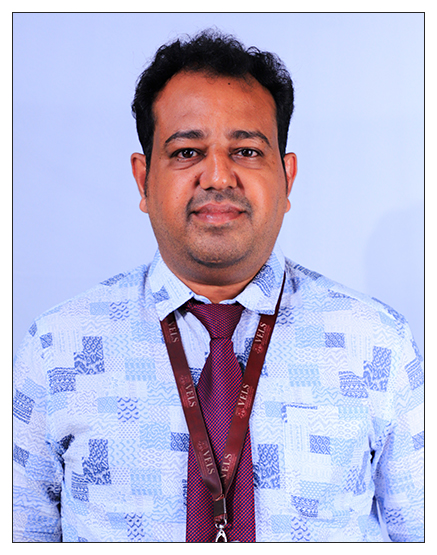 |
| 4 | Dr.Kalyana Chakravarthy.P.R | Assistant Professor | M.Tech., Ph.D | Structural Engineering, Structural Health Monitoring | 01.07.2011 | Regular | 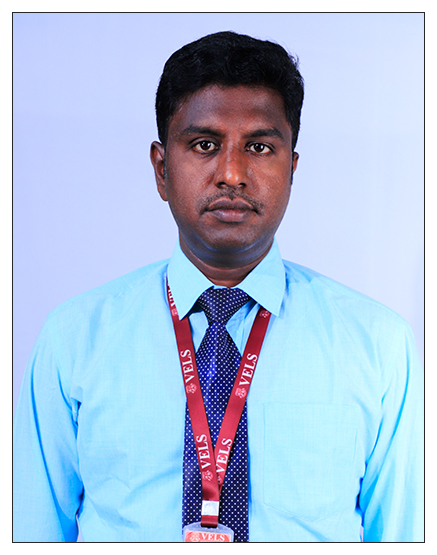 |
| 5 | Dr Sheena A D | Assistant Professor | M.E, Ph.D | Remote Sensing& GIS Applications | 18.07.2022 | Regular | 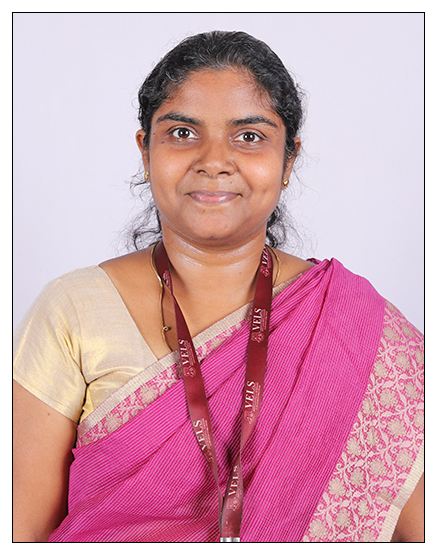 |
| 6 | Dr.DurgaLakshmi.S | Assistant Professor | M.E., Ph.D | Earthquake Engineering, Energy Efficient Building & Municipal Solid Waste Management | 01.07.2013 | Regular | 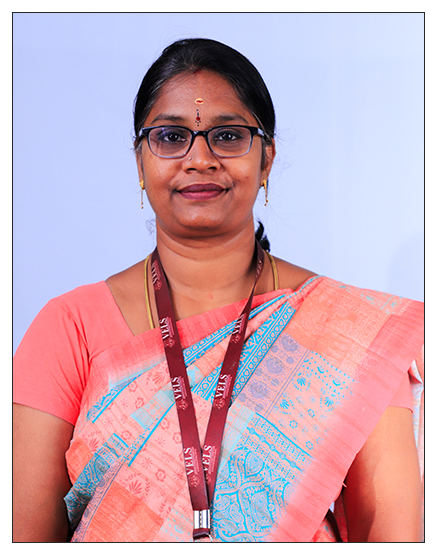 |
| 7 | Dr.Sharmilaa Ganesan | Assistant Professor | M.E.,Ph.D | Air Pollution | 03.08.2015 | Regular | 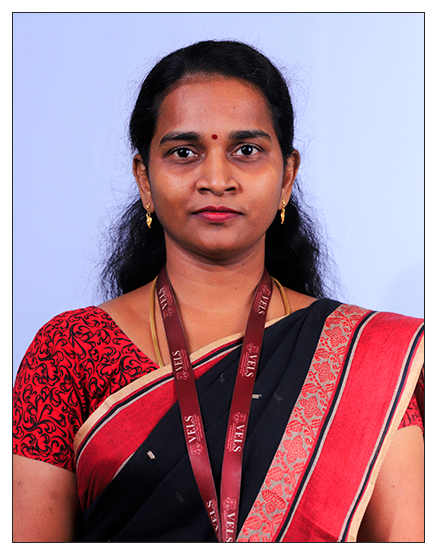 |
| 8 | Dr Sabarish K V | Assistant Professor | M.Tech., Ph.D | Optimization techniques in construction, Construction Project Management | 21.05.2016 | Regular | 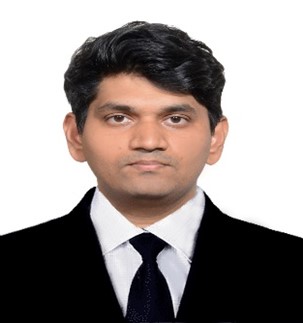 |
| 9 | Dr Soundarya.M.K. | Assistant Professor | M.E., Ph.D | Soil Stabilization | 18.07.2014 | Regular | 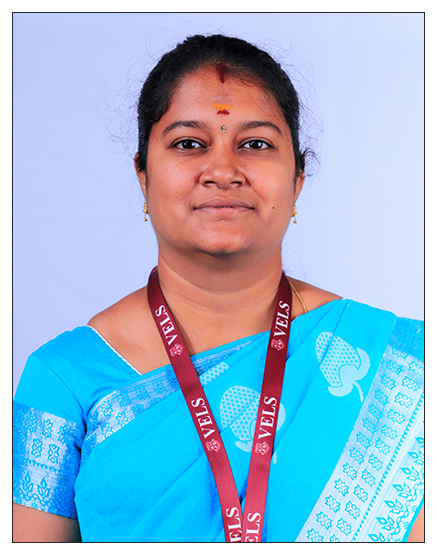 |
| 10 | Dr.Janani R | Assistant Professor | M.Tech., Ph.D | Construction project management, Sustainable construction methods | 18.07.2014 | Regular |  |
| 11 | Ms.Manju.K | Assistant Professor | M.E., (Ph.D) | Structural Engineering | 03.07.2017 | Regular | 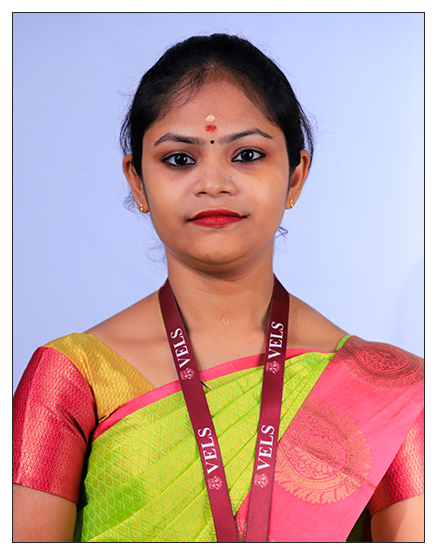 |
| 12 | Ms. G.K. Abinaya Ishwarya | Assistant Professor | M.E., (Ph.D) | Materials, Structural Engineering and Surveying | 02.07.2018 | Regular | 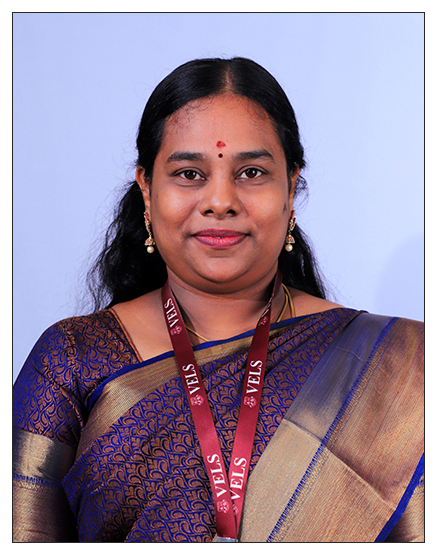 |
| 13 | Ms. M. Nivedhitha | Assistant Professor | M.E., (Ph.D) | Structural Engineering and Non motorized transportation | 10.07.2018 | Regular | 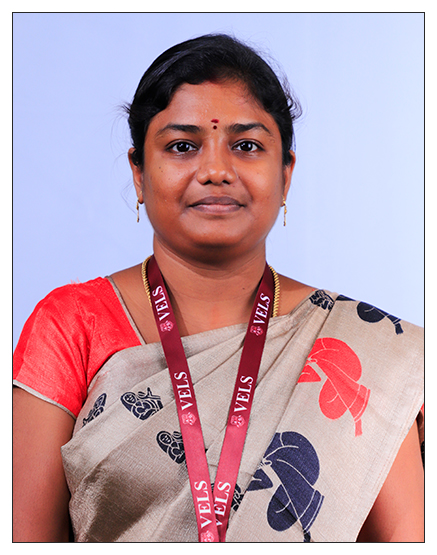 |
| 14 | Mr.Shaik Mohammad IshaqRoshanBasha | Assistant Professor | M.E., | Construction Planning and Scheduling | 28.08.2020 | Regular |  |
| 15 | Mrs BharaniPriya | Assistant Professor | M.E., | Construction Management and Sustainable materials | 28.08.2020 | Regular |  |
| 16 | Mrs V Dhivya | Assistant Professor | M.Tech., | Advanced Construction Technology | 01.09.2023 | Regular |  |
 CHAT WITH A STUDENT
CHAT WITH A STUDENT